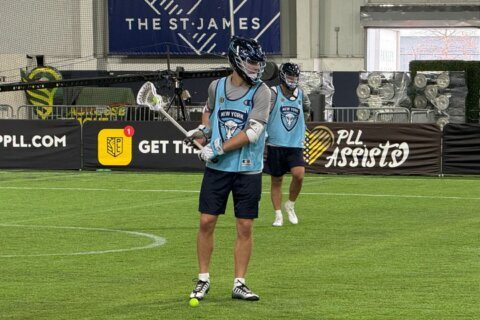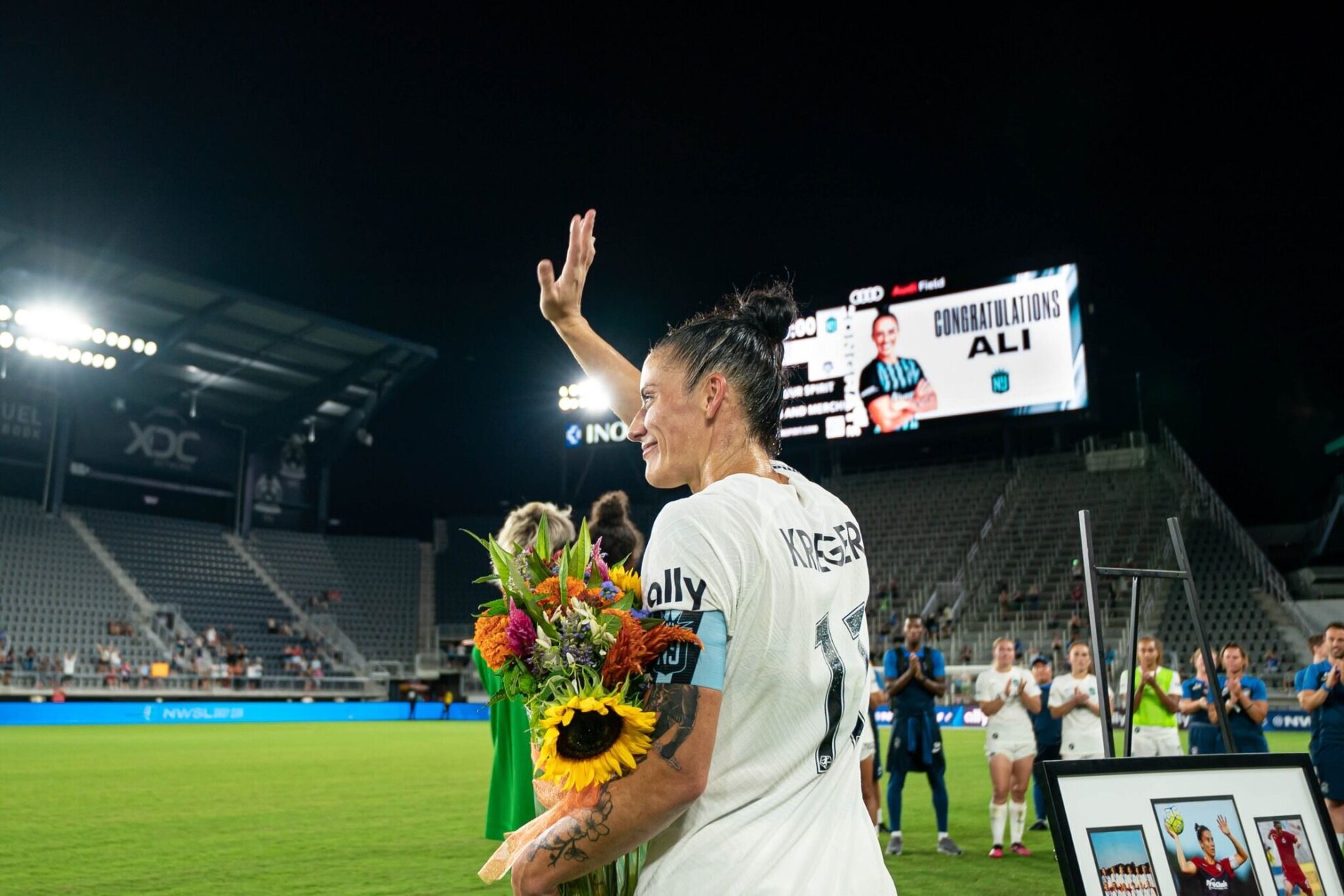
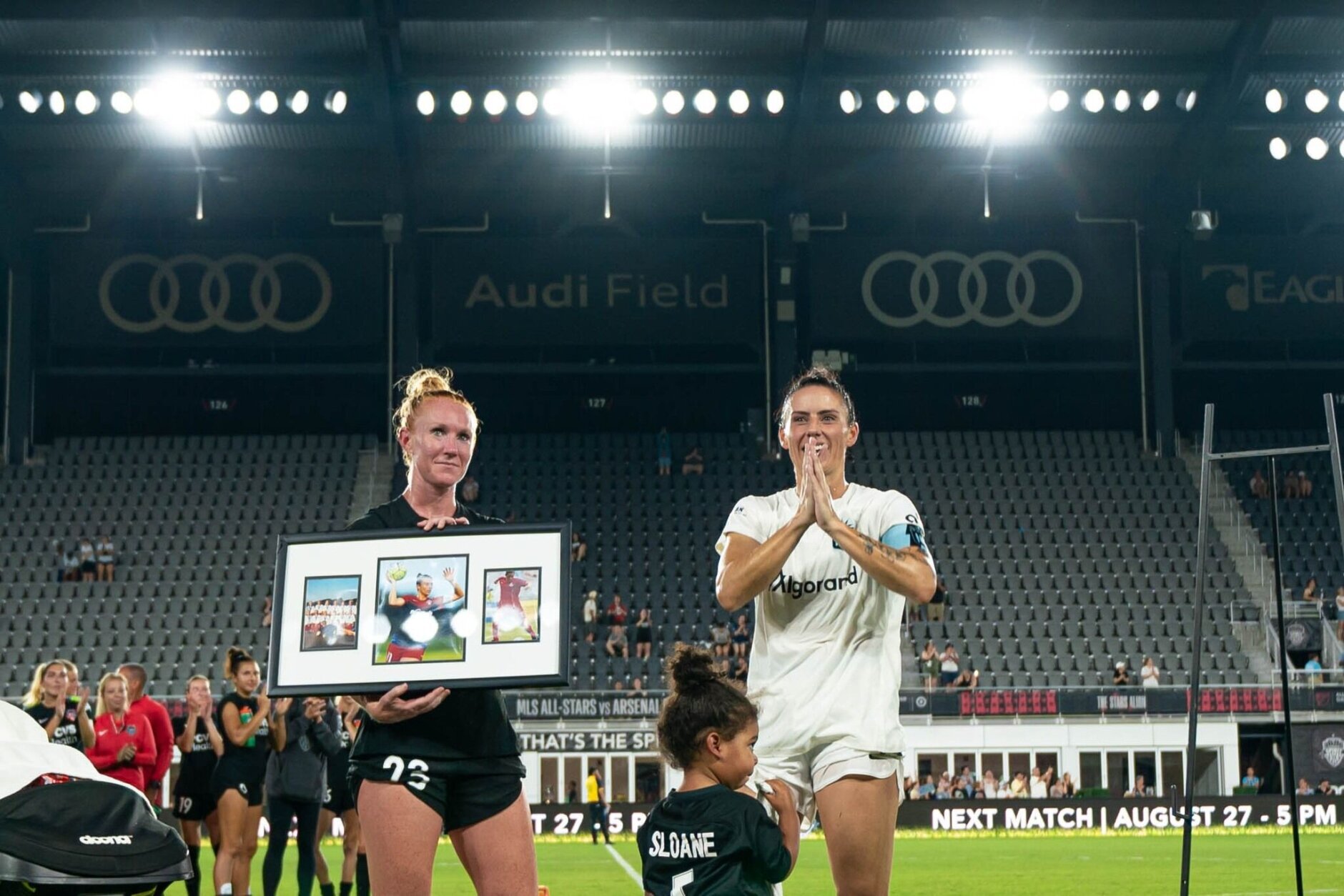
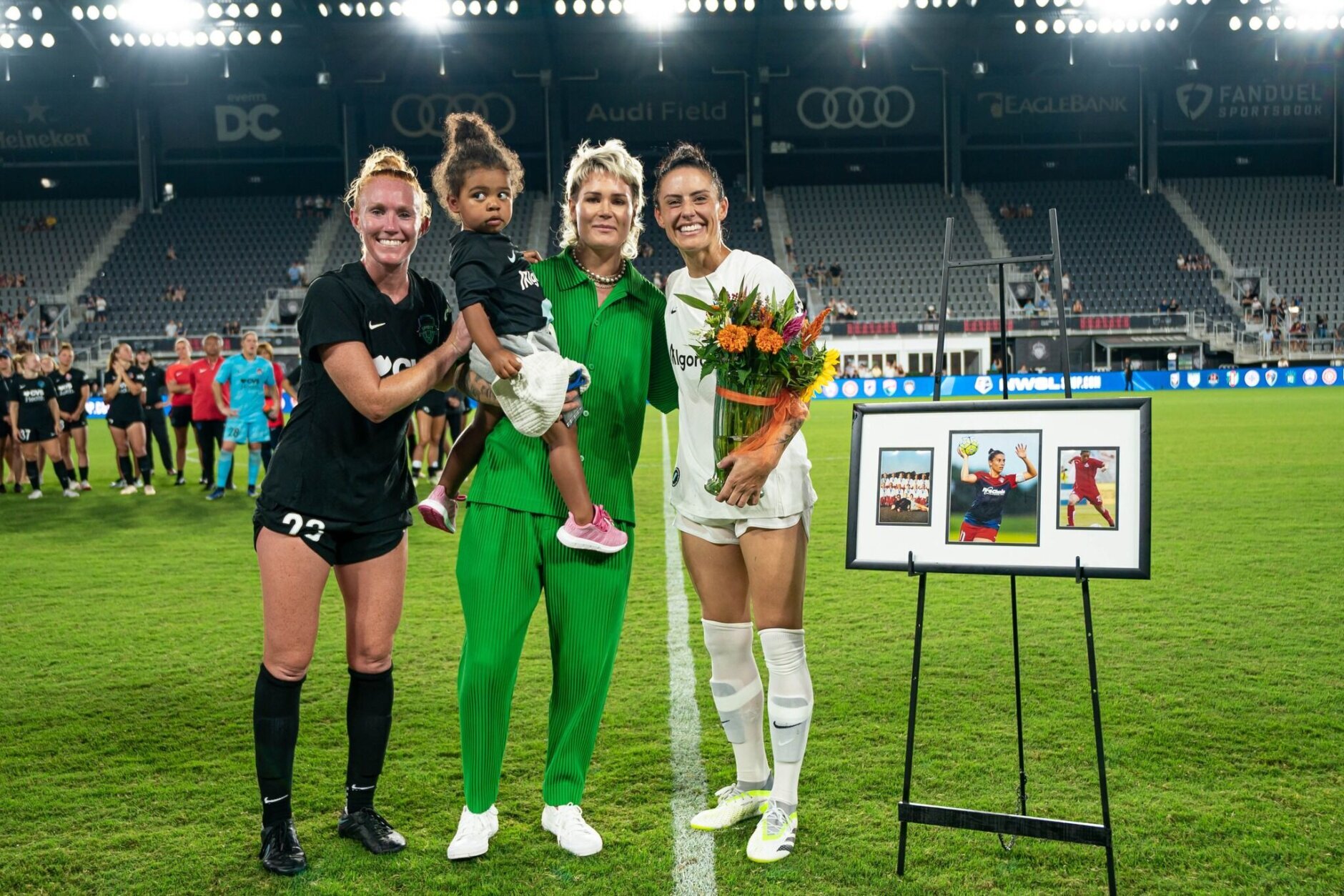

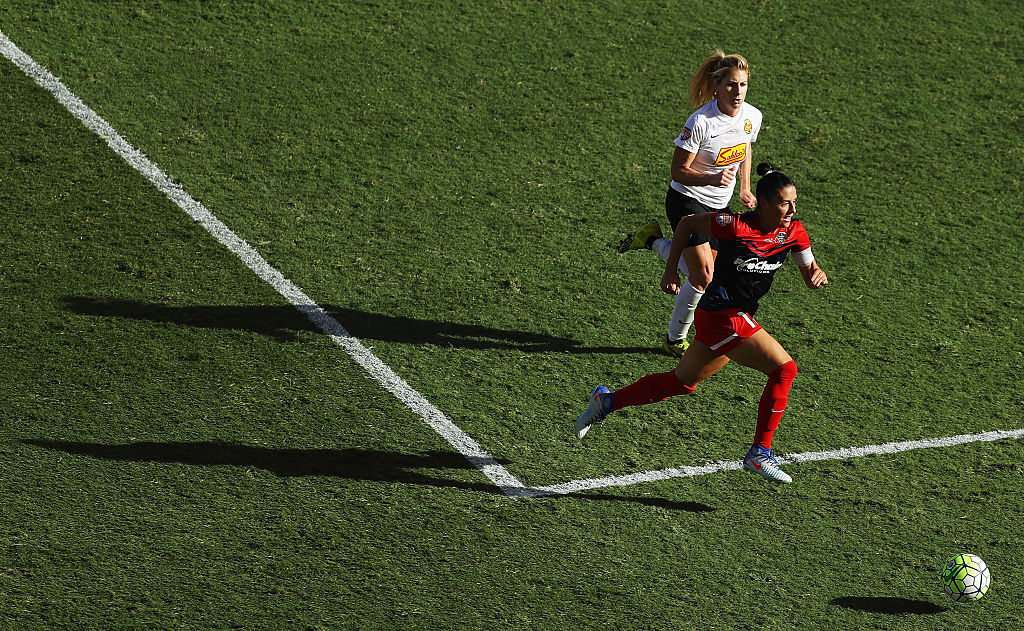
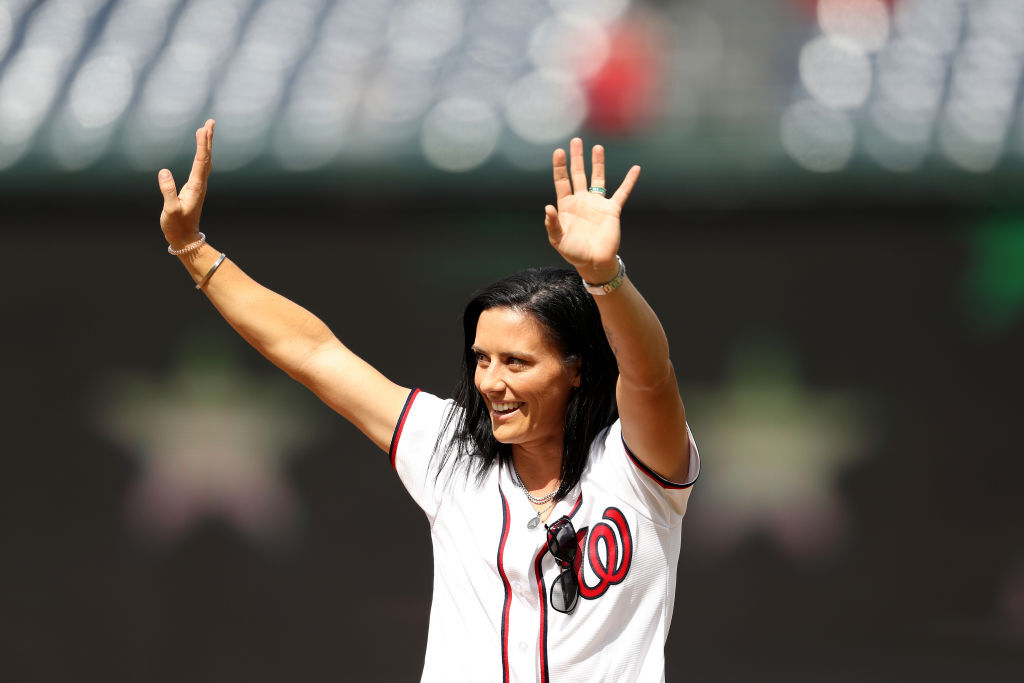
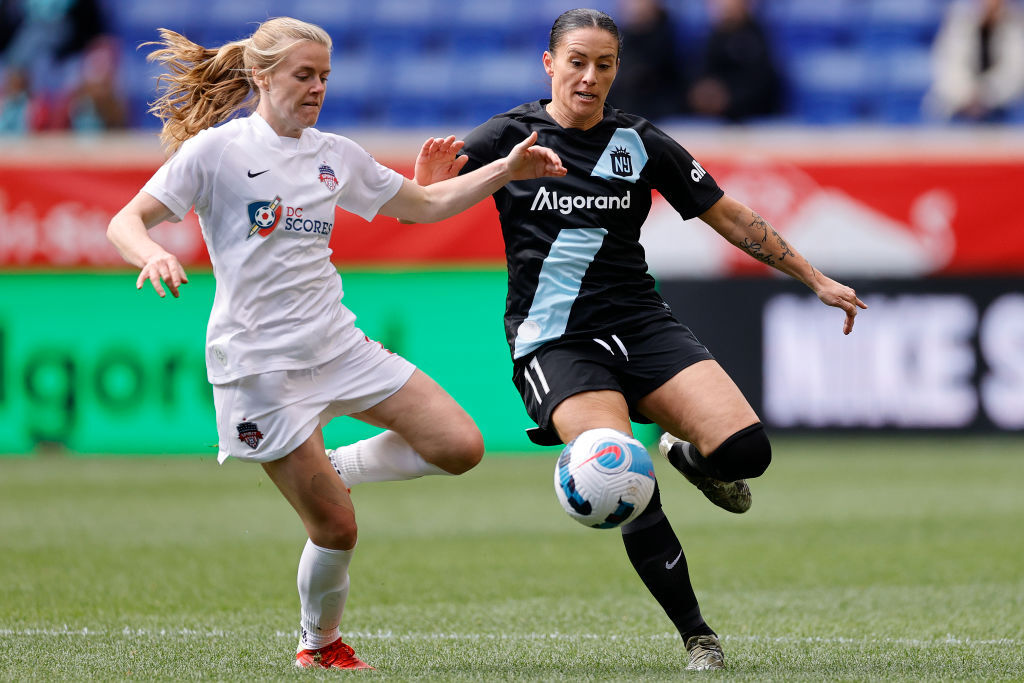
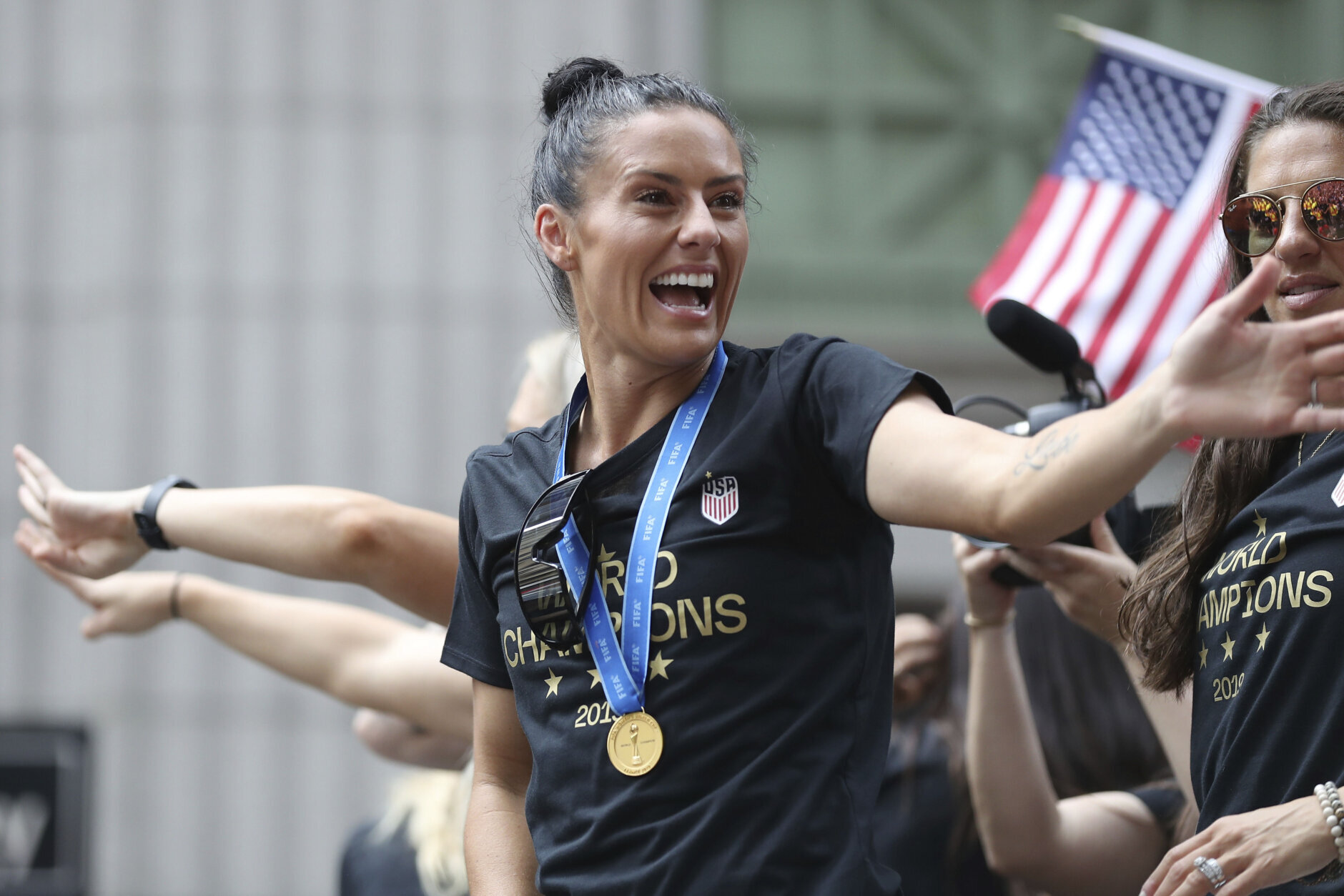


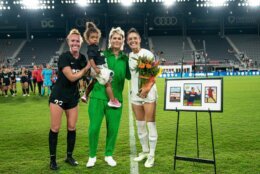


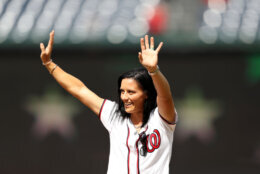
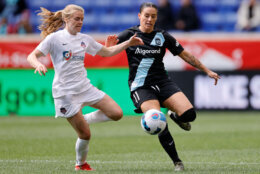
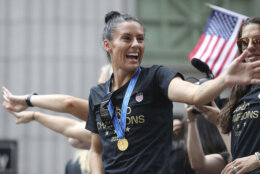
Ali Krieger tried not to get emotional. The NJ/NY Gotham FC star, known for her hardworking, stoic defensive play, stood in the middle of the pitch at D.C.’s Audi Field, placing her hands over her mouth as fans chanted her name.
The 39-year-old Dumfries, Virginia, native will retire at the end of the National Women’s Soccer League season after a 16-year championship-filled career, including winning two Women’s World Cups with the United States. After Krieger’s final regular season appearance in the D.C. area, the Washington Spirit — Krieger’s first NWSL club — presented her with a tribute on the field.
Krieger called the gesture “incredible.”
“It’s really rewarding to see the support, and I’m truly honored,” she said. “I gave everything for this club after four years to start the NWSL.”
Following the postgame ceremony, Krieger spoke to the media about the tribute from her “hometown club,” her relationship with the Spirit and her favorite memories as a player.
A planned tribute
The tribute comes over four months after Krieger first announced her retirement. Friends and family, including Krieger’s wife Ashlyn Harris, attended the game, with the ceremony taking place following the Spirit’s 4-2 victory over Gotham. Many of the thousands of spectators stayed to see one of the club’s first players receive her acknowledgment.
With her daughter Sloane clutching her leg during the presentation, Krieger received a plaque featuring three photos representing different phases of her local career. The most prominent photo was of the defender wearing a red and blue Spirit jersey with a captain’s armband.
Washington midfielder Tori Huster — who presented the plaque and was Krieger’s Spirit teammate — said the decision to honor Krieger was made after “a simple text message” to the front office.
“The league is going to miss her; I’m sure she is going to be around soccer for the rest of her life and do really amazing things yet to come,” Huster said. “She gave a lot to this game, and I think we are going to miss her a lot.”
This video is no longer available.
Krieger’s Spirit history
After playing in Germany for five years, 28-year-old Krieger returned to the U.S. in 2013 to join the NWSL, the third attempt at creating an American professional women’s soccer league. She was one of seven players allocated to the Spirit but stuck around for four seasons.
“It’s where I started my NWSL career, and we got all the way to the final … in 2016,” she said. “So many fun memories here, [and] it’s my hometown team. It’s been such an honor to play for such a great club for my initial four years in the league.”
Mark Parsons was the coach of the Spirit’s reserves team before becoming head coach of the main squad in the middle of the 2013 season. He was only 26 at the time and entering his first professional coaching gig with a captain two years older than him with international experience with the U.S. national team.
Yet, there was no sense of intimidation. Instead, when asked about coaching Krieger, Parsons, now in his second stint of coaching the Spirit, said he was “grateful” to have her as a player and a leader for her teammates.
“She is a warrior,” Parsons said. “She has so much intensity when she trains and when she plays. She has an awareness of what it takes to compete at the very top; she’s been there and won everything. I have huge respect for her.”
“When Krieger was here as my teammate, she really showed me what standard I can play at and should play at,” Huster added.
With Krieger as captain, the Spirit made the NWSL playoffs three times, and her header goal in the semifinals against Chicago helped lead Washington to its first championship appearance in 2016. In four seasons in Washington, she made 66 total appearances, scored four goals and represented the club when winning the 2015 Women’s World Cup with the U.S.
Despite her success on the pitch, Krieger detailed her struggles with the Spirit’s ownership. After being traded to Orlando in 2017, she detailed a falling out with former owner Bill Lynch in the Power Plays newsletter after repeated actions including refusing to hold a Pride Night event and attempting to stop star midfielder Megan Rapinoe from protesting the national anthem.
Years later, Krieger said her relationship with the Spirit is “much better” under current owner Michele Kang, who allowed the club to host its first Pride Night match in June. While she longs for the “intimate setting” of the Maryland SoccerPlex in Boyds, Maryland, Krieger said her hometown team has upgraded tremendously from playing in D.C.
“The fans are incredible,” she said. “The team is building every year and getting better, and so it’s really exciting to see.”
Reliving past local glory
Before her professional success, Krieger was a youth star. She played club soccer with the Prince William Sparklers while becoming a defensive stalwart for three seasons at Forest Park High School in Woodbridge. In her senior year, Krieger was voted Gatorade’s Virginia Player of the Year, and she accepted a scholarship to play at Penn State.
However, when asked about her favorite local memory, the defender recalled a long forgotten moment: playing for the Washington Freedom, the D.C. area’s first professional women’s soccer team. In 2004, less than a year after the Women’s United Soccer Association (WUSA) dissolved, the Freedom — who won the league’s final championship game — continued playing exhibition games featuring professional and college players.
Krieger quickly accepted the call to join and played alongside several pros, including former U.S. national team player Lori Lindsey. Despite the friendly games, she relished being around her first professional environment with veteran players.
“It was just really nice to kind of start feeling like a pro at such a young age,” she said. “I’ll always have that memory because it was the original Washington Freedom squad, and they were very successful.”
Now, as she heads down to the end of her career, new talents are becoming pros at a younger age. Krieger said she would advise future soccer stars from the D.C. area to roll up their sleeves and “get after it” every day to earn what they desire. They should also keep their voice and fight for issues they believe in.
“We’re definitely more than just footballers,” said Krieger. “It’s what we do, but it’s not who we are, so we have to always remember that.”




